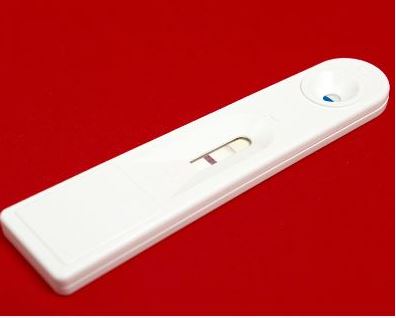 You’ve missed your period, or feel overwhelmed by a wave of nausea every morning, or you just have an inexplicable hunch that you might be preggers. Anxiously, you scour the Internet for a list of symptoms that match what you’re facing, and your excitement (or apprehension?) mounts to a fever pitch…
You’ve missed your period, or feel overwhelmed by a wave of nausea every morning, or you just have an inexplicable hunch that you might be preggers. Anxiously, you scour the Internet for a list of symptoms that match what you’re facing, and your excitement (or apprehension?) mounts to a fever pitch…
… and stays there. Because you really can’t be sure about anything going by just symptoms alone. Virtually every site you view or book you read will have a one-liner that goes something along the lines of “These symptoms may be caused by other things besides being pregnant. So the fact that you notice some of these symptoms does not necessarily mean you are pregnant. The only way to tell for sure is with a pregnancy test.”
And so, in the end, you realize you need to take a pregnancy test in order to be able to know conclusively that you are, indeed, expecting.
It’s important to note that most home pregnancy test kits will only be able to accurately detect your pregnancy if used on or after the date your period is due. This is because these test kits base their results on the concentration of human chorionic gonadotropin (hCG), a pregnancy hormone, in your urine. Too early in the pregnancy, the level of hCG in your urine may not be high enough for a positive reading. The more sensitive a pregnancy test is, the earlier you will be able to see a positive result clearly.
If the test kit you’re using shows a very faint positive line, it could be that it is not very sensitive. Look on the box for details on the test sensitivity – the lower the number, the more precise the test. For example, a test with a sensitivity of 20 IU/L (milliInternational Units per Litre) is better than that with a sensitivity of 50 IU/L.
That said, you may also get a faintly positive result if you’re not as far along as you thought. To set your mind at rest, take another test in two or three days’ time or visit your local GP or gynecologist to get it checked out. Most home urine tests should be positive by the time your period is due if your pregnancy is progressing as nomal.
On the other hand, the blood test for pregnancy measures the levels of hCG in your bloodstream much more reliably up to one week before your expected date of period. However, this test is only available on doctor’s orders, if you have any pressing medical conditions or other reasons to know whether or not you have conceived.
By Dorothea Chow






